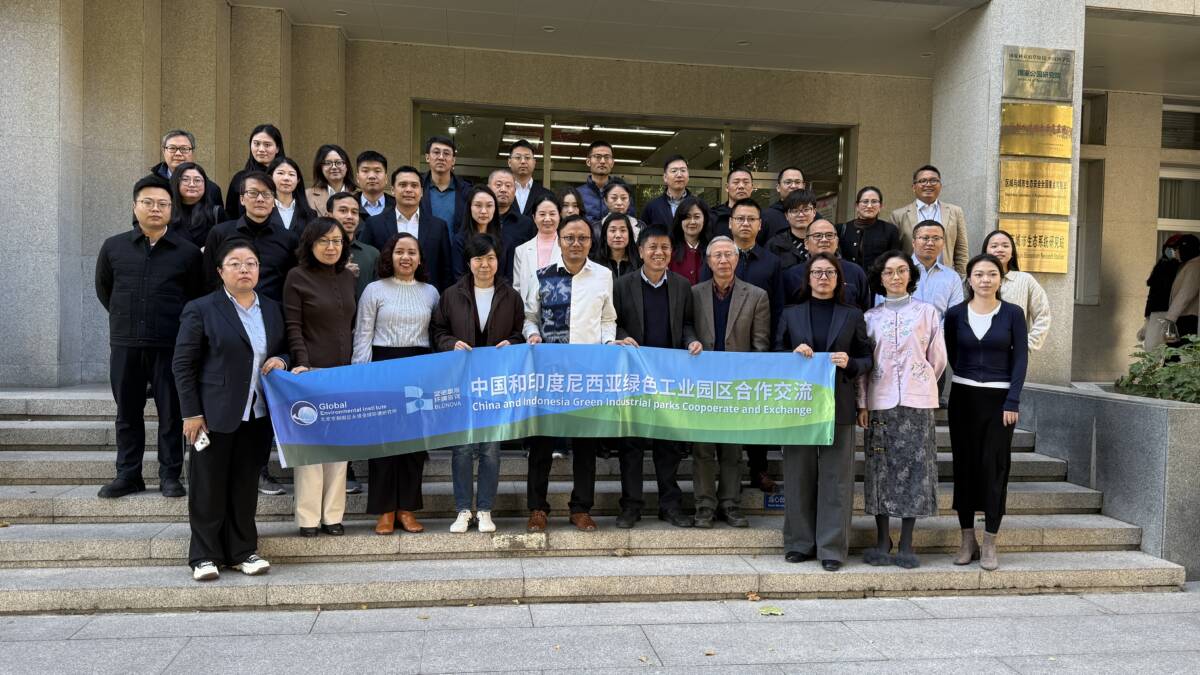Beijing, October 27, 2025 – In an effort to strengthen the direction of industrial transformation toward sustainability, an Indonesian delegation comprising representatives from the Indonesian Industrial Estate Association (HKI), the Ministry of Industry, the Ministry of Investment and Downstreaming/BKPM, and the Institute for Essential Services Reform (IESR) conducted a working visit to China. Over three days, the delegation explored two major industrial hubs, Beijing and Tianjin, to learn firsthand how China is restructuring its industrial parks to be greener, more efficient, and globally competitive.
“Industrial parks are not just places for production, but also spaces for innovation and evolution. We want to see how the green transformation can become a new driver of economic growth,” said Marlistya Citraningrum, IESR’s Sustainable Energy Access Program Manager, during the opening of the event.
Collaboration for Green Industrial Parks
The activities began with the “China–Indonesia Industrial Parks Green Development Conference” on October 27 at the Chinese Academy of Sciences (CAS), Beijing. This conference marked a joint commitment to accelerate the green transformation of industrial parks through technology transfer, standard setting, and the development of pilot projects ahead of COP30.
Indonesia currently has 173 industrial parks, 57 of which are located in Java. The government has begun implementing the Eco-Industrial Park (EIP) framework, or Kawasan Industri Berwawasan Lingkungan (KIBL), based on new 2024 regulations that emphasize four key aspects: governance, environment, social, and economic. On the other hand, China has long practiced similar initiatives with over 400 national industrial parks, which contribute 25% of its GDP and nearly half of the country’s total exports.
One successful example is the Beijing E-Town Zero-Waste Park, an industrial area that has successfully reduced waste through fiscal incentives, data-driven planning, and intelligent monitoring systems. “Fiscal incentives are key. In E-Town, the government allocated over 440 million yuan to encourage resource efficiency in more than 800 projects,” revealed a representative from the Beijing E-Town Development Agency.
The discussions also highlighted the importance of integrating clean energy into industrial park systems. Indonesia still faces the challenge of coal dependence, while China is beginning to implement an hourly grid-carbon factor to calculate electricity emission intensity in real-time. This technology allows companies to verify the carbon footprint of their products, in line with Europe’s Carbon Border Adjustment Mechanism (CBAM).
Beyond energy, water and waste management practices in China were also a focus. Systems such as the separation of rainwater and wastewater, online monitoring, and Zero Liquid Discharge (ZLD) have proven to reduce pollution and increase operational efficiency. The Indonesian delegation noted significant opportunities to adapt these practices, especially in older industrial parks that still use conventional treatment systems.
The conference was attended by representatives from various institutions, including the Research Center for Eco-Environmental Sciences (CAS), the All-China Environment Federation, the Belt & Road Eco-Industry Cooperation, and companies providing technology and managing industrial parks.

